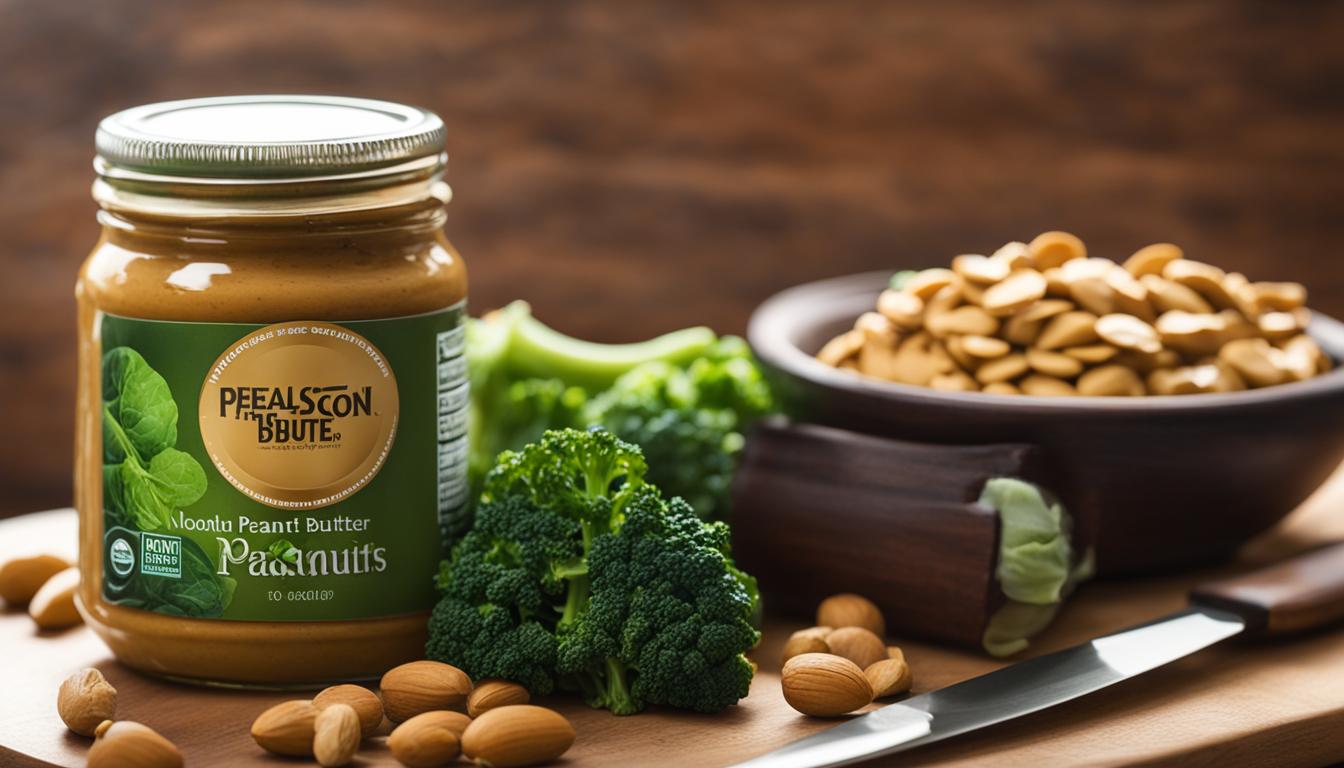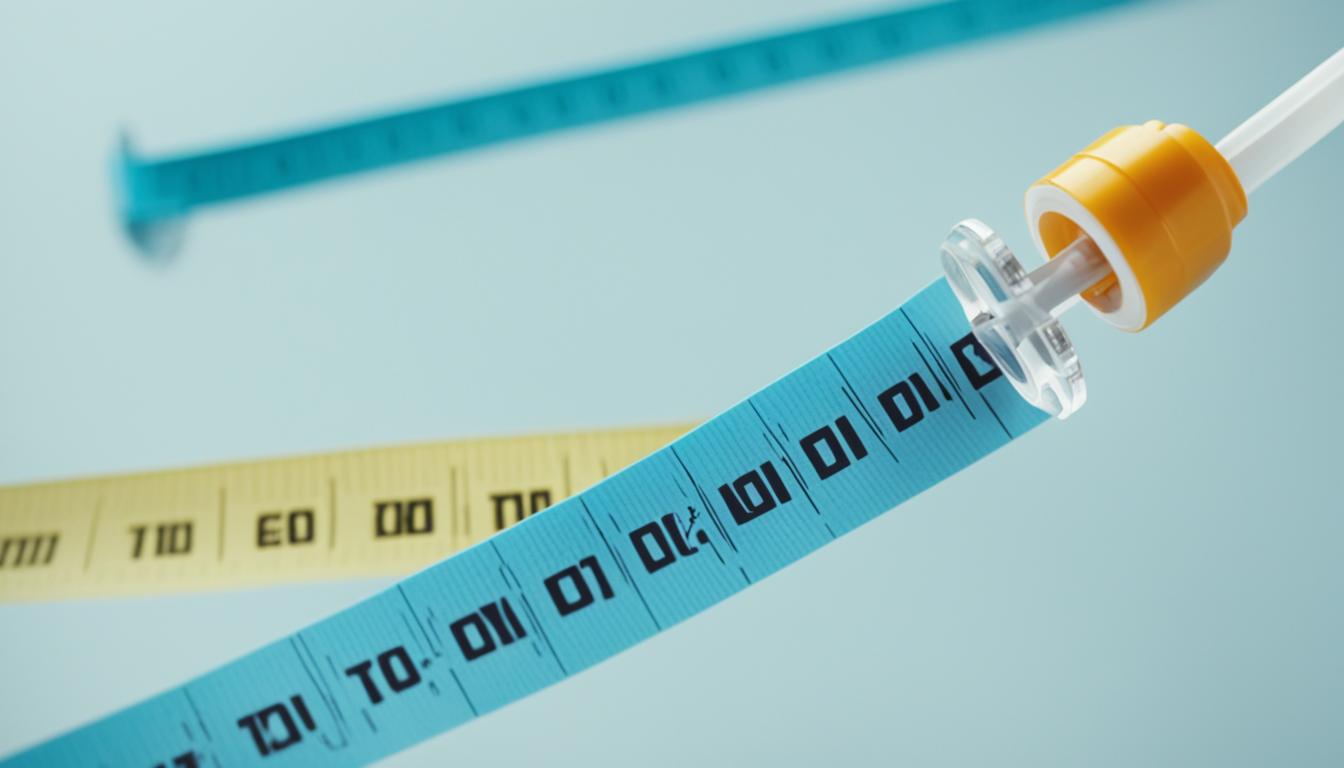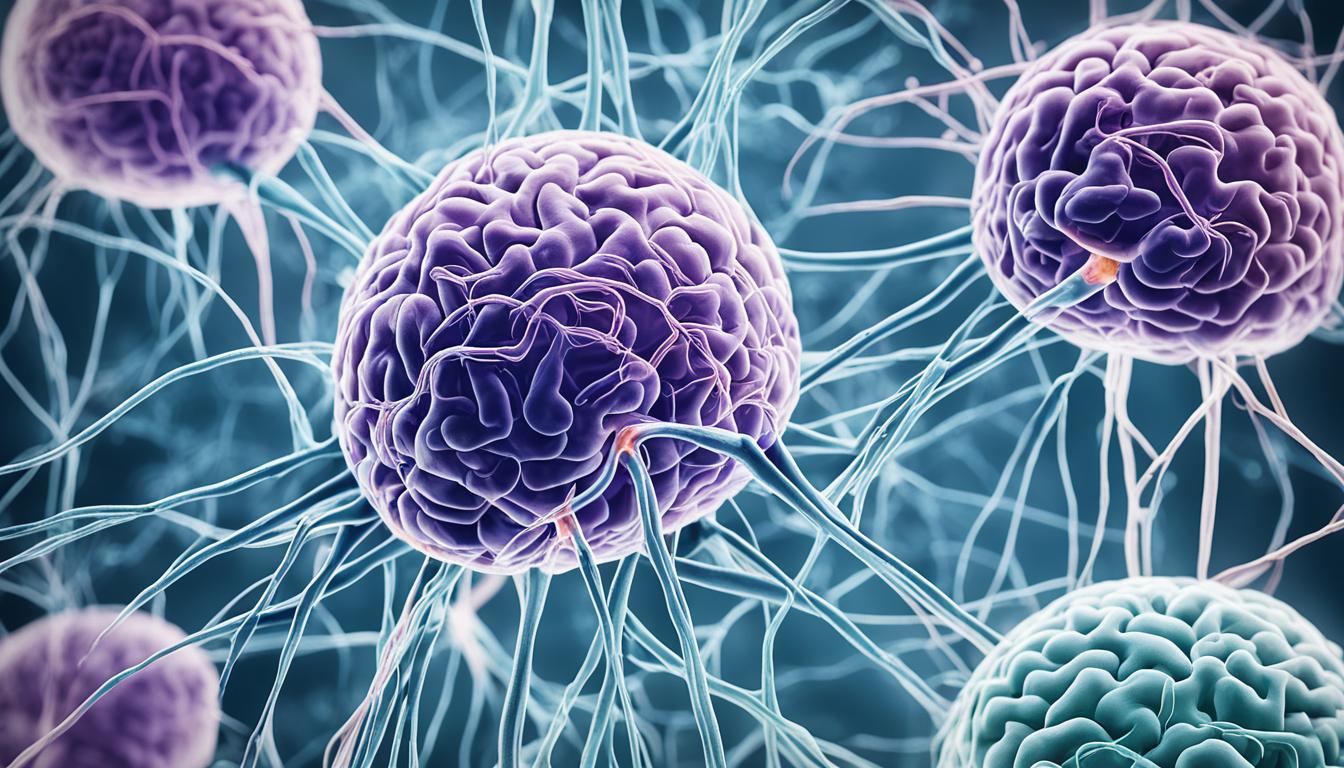Prostate cancer is a prevalent form of cancer among men, especially in the United States where it is the most common cancer in men. While there has been speculation about the potential benefits of nut consumption, including peanut butter, in reducing the risk of prostate cancer, the evidence has been inconsistent. Some studies suggest that the nutrients found in nuts, such as unsaturated fatty acids, protein, fiber, and antioxidants, may have protective effects against cancer development. However, other studies have not found a significant association between nut consumption and prostate cancer risk. Further research is needed to fully understand the relationship between peanut butter and prostate health.
Key Takeaways:
- Peanut butter has been associated with potential benefits for prostate health, but the evidence is inconclusive.
- Research suggests that the nutrients in peanut butter, such as unsaturated fatty acids, fiber, and antioxidants, may have protective effects against cancer development.
- However, some studies have not found a significant association between peanut butter consumption and prostate cancer risk.
- Incorporating peanut butter into a balanced diet that includes other foods for prostate health may contribute to overall prostate health.
- Consulting with a healthcare professional is always recommended for personalized dietary advice and prostate health management.
The Nutrient Profile of Peanut Butter
Peanut butter is a nutrient-dense food that can play a role in promoting prostate health. It contains a wide range of macronutrients and bioactive compounds that can contribute to overall well-being and potentially aid in the prevention of prostate cancer.
The Power of Peanut Butter
Let’s take a closer look at the nutrient profile of peanut butter:
| Nutrient | Benefits |
|---|---|
| Monounsaturated and Polyunsaturated Fatty Acids | These healthy fats can help reduce inflammation in the body and support heart health. |
| High-Quality Vegetable Protein | Peanut butter is packed with protein, which is essential for building and repairing tissues in the body. |
| Fiber | Fiber aids in digestion, helps keep you feeling full, and promotes a healthy gut. |
| Minerals | Peanut butter contains important minerals like potassium, magnesium, and zinc, which are beneficial for overall health and well-being. |
| Tocopherols and Phytosterols | These compounds have antioxidant properties and may help protect against oxidative stress. |
| Polyphenols and Resveratrol | These plant-based compounds have been linked to various health benefits, including potential anti-cancer properties. |
| Phenolic Compounds | Phenolic compounds found in peanut butter have shown antioxidant effects and may contribute to overall health. |
| Folic Acid | Folic acid, or folate, is essential for DNA synthesis and plays a role in cell division and growth. |
These components make peanut butter a valuable addition to a balanced and varied diet aimed at promoting prostate health.
When incorporating peanut butter into your diet, it’s important to remember that moderation is key. While peanut butter offers numerous health benefits, it is also high in calories, so it’s essential to consume it in appropriate portions.
By combining peanut butter with other prostate-friendly foods such as fruits, vegetables, whole grains, and lean proteins, you can maximize the potential benefits for your prostate health.
The Evidence on Peanut Butter and Prostate Cancer Risk
Research on the association between peanut butter consumption and prostate cancer risk has yielded mixed results. Some studies, including large prospective cohort studies, have found no significant association between nut consumption, including peanut butter, and overall prostate cancer risk.
“While some studies suggest that the nutrients found in peanut butter may have potential protective effects against prostate cancer, overall evidence from large prospective cohort studies does not support a significant association between peanut butter consumption and prostate cancer risk.”
These studies examined total nut consumption and reported no association with prostate cancer risk, including both localized and advanced forms of the disease.
However, a few case-control studies have suggested an inverse association between nut consumption and prostate cancer. Differences in study design, sample size, and population characteristics may contribute to the inconsistent findings.
Further research is needed to clarify the relationship between peanut butter consumption and prostate cancer risk.

| Study Type | Study Findings |
|---|---|
| Prospective Cohort Studies | No significant association between peanut butter consumption and overall prostate cancer risk. |
| Case-Control Studies | Suggested an inverse association between nut consumption and prostate cancer. |
The Prospective National Institutes of Health-American Association of Retired Persons (NIH-AARP) Study
The National Institutes of Health-American Association of Retired Persons (NIH-AARP) Diet and Health Study is one of the largest prospective cohort studies examining the association between peanut butter consumption and prostate cancer risk. This study followed a large group of men for an average of 15 years and assessed their nut and peanut butter consumption.
The findings from this study showed no significant association between nut consumption, including peanut butter, and overall prostate cancer risk. Additionally, there was no association with localized, advanced, or fatal prostate cancers. These results suggest that peanut butter consumption is not a significant risk factor for prostate cancer.

Peanut butter is a delicious and versatile spread that can be enjoyed as part of a balanced diet. While it’s important to maintain overall prostate health, the NIH-AARP study provides evidence that consuming peanut butter does not significantly increase the risk of prostate cancer. This finding can reassure men who enjoy peanut butter regularly and help dispel any concerns regarding its impact on prostate health.
Conclusion
In conclusion, the potential benefits of peanut butter in prostate health and cancer prevention are still unclear. While some studies suggest that the nutrients in peanut butter may have protective effects against prostate cancer, overall evidence from large prospective cohort studies does not support a significant association between peanut butter consumption and prostate cancer risk. However, incorporating peanut butter as part of a balanced diet that includes other natural remedies for prostate health may contribute to overall prostate health.
It is important to note that prostate health is multifactorial, and dietary choices play just one part in maintaining prostate health. Regular exercise, maintaining a healthy weight, and getting regular check-ups with a healthcare professional are also important aspects of a comprehensive approach to prostate health.
If you have concerns about prostate health or are looking for personalized dietary advice, it is always recommended to consult with a healthcare professional. They can help guide you in making informed decisions that align with your specific needs and health goals.
FAQ
Does peanut butter help with prostate health?
The relationship between peanut butter and prostate health is still uncertain. Some studies suggest that the nutrients in peanut butter may have potential protective effects against prostate cancer, but overall evidence does not support a significant association between peanut butter consumption and prostate cancer risk.
What are the benefits of peanut butter for prostate health?
Peanut butter is a nutrient-dense food that contains important macronutrients and bioactive compounds. It is a rich source of monounsaturated and polyunsaturated fatty acids, high-quality vegetable protein, fiber, minerals, tocopherols, phytosterols, polyphenols, resveratrol, phenolic compounds, and folic acid. While the specific benefits of peanut butter for prostate health are still being studied, incorporating it into a balanced and varied diet that includes other prostate-healthy foods may contribute to overall prostate health.
Can dietary changes improve prostate health?
Dietary changes can play a role in maintaining prostate health. Including foods such as fruits, vegetables, whole grains, lean proteins, and peanut butter in a balanced diet may promote prostate health. However, it is important to consult with a healthcare professional for personalized dietary advice and to manage prostate health effectively.
Is there a link between peanut butter and prostate inflammation?
The evidence on the association between peanut butter consumption and prostate inflammation is limited. Some studies suggest that certain nutrients found in peanut butter, such as antioxidants, may have anti-inflammatory effects and potentially benefit prostate health. However, more research is needed to fully understand this relationship.
What does the NIH-AARP study say about peanut butter and prostate cancer risk?
The National Institutes of Health-American Association of Retired Persons (NIH-AARP) Diet and Health Study, one of the largest prospective cohort studies, found no significant association between peanut butter consumption and overall prostate cancer risk. This study followed a large group of men for an average of 15 years and concluded that peanut butter consumption is not a significant risk factor for prostate cancer.
Can a Diet Including Boiled Eggs and Peanut Butter Benefit Prostate Health?
A diet including the benefits of boiled egg and peanut butter can indeed benefit prostate health. Boiled eggs contain nutrients like vitamin D and selenium, which help in maintaining prostate health. Peanut butter, being rich in unsaturated fats and protein, contributes to a healthy diet that can support prostate health.



